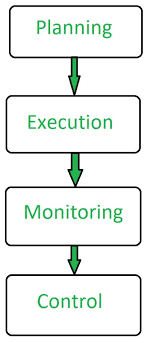Optimizing Real Estate Projects with Development Management Software
The Role of Real Estate Development Management Software in Streamlining Projects
Real estate development management software has revolutionized the way projects are planned, executed, and monitored in the real estate industry. This specialized software is designed to cater to the unique needs of real estate developers, helping them streamline processes, improve efficiency, and enhance collaboration among project stakeholders.
Key Features of Real Estate Development Management Software:
Project Planning and Scheduling: Real estate development management software allows developers to create detailed project plans, allocate resources effectively, and set realistic timelines for each phase of the project.
Budgeting and Financial Management: With built-in financial tools, developers can track project expenses, manage budgets, forecast costs accurately, and ensure that financial goals are met throughout the project lifecycle.
Document Management: The software provides a centralized repository for storing and managing project documents such as contracts, permits, drawings, and reports. This ensures that all stakeholders have access to up-to-date information at all times.
Collaboration Tools: Real estate development management software facilitates communication and collaboration among team members, contractors, architects, and other stakeholders. Features like real-time messaging, file sharing, and task assignment help streamline workflow processes.
Benefits of Using Real Estate Development Management Software:
– Improved Efficiency: By automating repetitive tasks and providing real-time insights into project progress, the software helps developers save time and resources.
– Enhanced Decision-Making: Access to accurate data and analytics enables developers to make informed decisions quickly, leading to better outcomes for their projects.
– Increased Transparency: Stakeholders can track project milestones, monitor budget allocations, and view progress reports in real-time, promoting transparency throughout the development process.
In Conclusion
Real estate development management software plays a crucial role in modernizing project management practices within the real estate industry. By leveraging the advanced features of this software, developers can overcome challenges more effectively, deliver projects on time and within budget, and ultimately achieve greater success in their ventures.
6 Essential Tips for Choosing the Right Real Estate Development Management Software
- Choose a software that offers project management tools to track progress and deadlines.
- Look for a platform with budgeting features to monitor expenses and forecast costs accurately.
- Select a system with collaboration capabilities to streamline communication among team members.
- Opt for software that provides analytics and reporting functions for data-driven decision-making.
- Ensure the software is scalable to accommodate growth and changes in your real estate projects.
- Prioritize user-friendly interfaces and training resources for easy adoption by your team.
Choose a software that offers project management tools to track progress and deadlines.
When selecting real estate development management software, it is essential to opt for a solution that provides robust project management tools to monitor progress and deadlines effectively. By choosing software with these capabilities, developers can ensure that projects stay on track, tasks are completed in a timely manner, and deadlines are met efficiently. Tracking progress and deadlines through project management tools not only enhances productivity but also promotes better decision-making and overall project success.
Look for a platform with budgeting features to monitor expenses and forecast costs accurately.
When considering real estate development management software, it is essential to prioritize platforms that offer robust budgeting features. By selecting a software solution with advanced budgeting capabilities, developers can effectively monitor expenses, allocate resources efficiently, and forecast costs accurately. This feature not only helps in maintaining financial control throughout the project but also enables informed decision-making to ensure that the project stays within budget constraints and achieves financial goals successfully.
Select a system with collaboration capabilities to streamline communication among team members.
Selecting a real estate development management software system with collaboration capabilities is essential for streamlining communication among team members. By choosing a platform that facilitates easy sharing of information, real-time messaging, and task assignment, project stakeholders can work together more efficiently and effectively. This feature promotes better coordination, enhances productivity, and ensures that everyone involved in the project stays informed and aligned towards common goals.
Opt for software that provides analytics and reporting functions for data-driven decision-making.
When selecting real estate development management software, it is advisable to choose a solution that offers robust analytics and reporting capabilities. By opting for software that provides detailed insights and data-driven reports, developers can make informed decisions based on accurate information. These analytics tools enable stakeholders to track project performance, identify trends, and forecast outcomes, ultimately enhancing the overall efficiency and success of real estate development projects.
Ensure the software is scalable to accommodate growth and changes in your real estate projects.
When selecting real estate development management software, it is essential to ensure that the chosen solution is scalable to accommodate the growth and changes in your projects. Scalability allows the software to expand and adapt as your real estate ventures evolve, ensuring that it can meet the increasing demands and complexities of your projects over time. By choosing a scalable software solution, developers can future-proof their operations and effectively manage their expanding portfolio with ease and efficiency.
Prioritize user-friendly interfaces and training resources for easy adoption by your team.
When implementing real estate development management software, it is essential to prioritize user-friendly interfaces and provide comprehensive training resources for seamless adoption by your team. By offering intuitive interfaces and robust training materials, you can ensure that your team members can easily navigate the software, maximize its functionalities, and effectively collaborate on projects. Investing in user-friendly design and training resources not only enhances user satisfaction but also boosts productivity and efficiency within your real estate development team.





